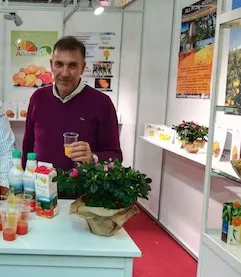 It was not Covid-19, nor the closure of some sales channels due to the restrictions, nor the abundant quantities available that dealt a dramatic blow to the Sicilian citrus fruit sector, as there have been problems for years, forcing producers to sell fruit below production costs.
It was not Covid-19, nor the closure of some sales channels due to the restrictions, nor the abundant quantities available that dealt a dramatic blow to the Sicilian citrus fruit sector, as there have been problems for years, forcing producers to sell fruit below production costs.
Salvatore Imbesi, technical manager at Ortogel, reports that "Sicily is finally becoming aware that its production costs exceed those of other countries by over 200% and there is finally talk of rules and a national citrus fruit register. I had already talked about the frailties of this sector years ago, the competitiveness of the entire chain is at risk. Of course, in a year such as this one characterized by the need to absorb a huge amount of small-grade citrus fruit, placing them on the market is a catastrophe! It is therefore necessary to stress that the safeguard of the food and agricultural sector must include strategies that support all operators. Investments must be based on a long-term vision supported by clear rules that take volumes handled as reference."
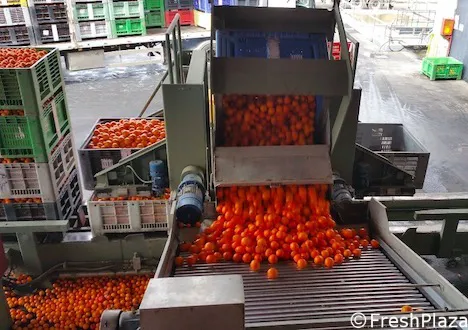
According to Imbesi, a citrus fruit register is also needed to monitor the total volumes via a national database.
"It would enable us to know exactly the volumes produced in Italy and how much produce comes in from abroad. At the same time, we could establish a fair price for our productions like some well-organized chains in northern Italy do. This could work for all Sicilian fresh produce (citrus fruit, pomegranates, prickly pears and nectarines) and processed produce chains, especially since the latter provides consumers with no information as regards the origin of the produce. Specifically, we need to focus on being competitive and improve product quality as well as the profitability for all actors along the chain."
"Failing to do so would only generate benefits for those who try to pass for Italian produce what clearly is not, at the expense of the weakest link of the chain, i.e. producers."
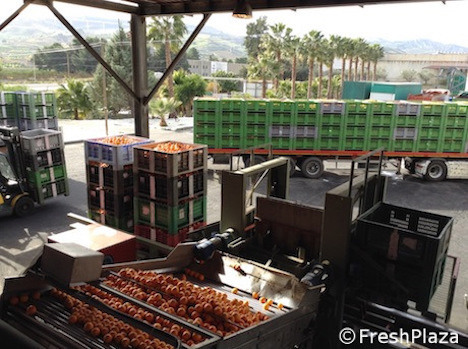
"Despite the surplus, Ortogel has guaranteed fruit collections and prices to its partners, so the current campaign was not subject to speculation as companies only processed Italian fruits."
Unlike 2020, there are currently congruous volumes of small fruits or fruits unsuitable for the fresh produce market. Ortogel has always guaranteed a fair price to producers, in line with the quotations of the fresh produce despite the problem of alternating productions typical of citrus fruits.
The price Ortogel pays producers does not stem from the increase in the sales price of by-products, but from the new market balance the Orogel chain created. In absence of said chain, the quotation of industry citrus fruits fell to €0.05/kg. It is undisputable that, in order to avoid market anomalies, the sector needs strict rules so that all actors can compete on the market under uniform rules. Data is also needed to estimate yields in relation to the type and age of groves.
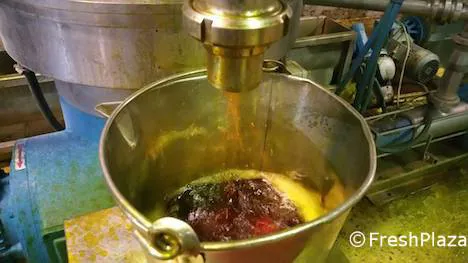
Ortogel is also dealing with Community regulation 2020/1085, which forbids the use of the Clorpirifos and Clorpirifos metile active principles on all food matrixes, lowering it to 0,01 as of November 13th 2020. In April 2020, Ortogel started asking the competent authorities to issue urgent provision with the help of Anicav (national association for vegetable preserves) to find a solution to a problem that cannot be ascribed to producers nor processers.
"Unfortunately, the pesticides used up to that date are found as residue in essential oils, making them unmarketable. The regulation has not established a transitional period, but no indication was provided on how to use or dispose of the by-products placed on the market before the provision entered into force."
Contacts: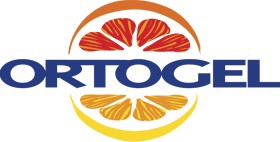
Ortogel Spa
C.da Balchino Zona Industriale
95039 Caltagirone (CT) (Italy)
Tel.: +39 0933 1902800
Cell.: +39 348 8949166
Email: info@ortogel.com
Website: www.ortogel.com
